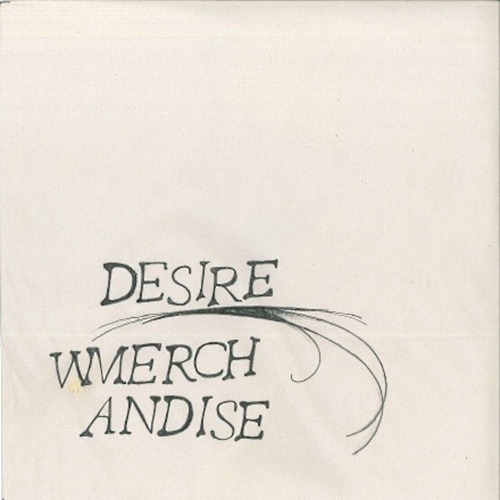Any successful investigation into Merchandise will probably unearth comparisons to The Cure, Joy Division and The Smiths. In terms of finding that humid ’80s sound, there probably isn’t a better cloth to cut from. Merchandise don’t just parrot these bands though, their music is equally molded by geography.
As active members of the music scene in Tampa Bay, these guys split their time between numerous other projects. Their first love is punk, but their eagerness to move into different genres is plastered all over Children of Desire. Merchandise aren’t just chasing after a distinguished sound, they’re projecting themselves onto it. This is a scrapbook, an ambitious assortment of recollections that’s both deeply emotional and strangely taciturn.
Children of Desire mutters to itself. It wants to push things out into the open, but it’s also a bit timid, wary of the replies it might receive should it reveal all of its secrets. “Time,” which is about pulling back from a loved one, is turbulent and opaque. It’s more about getting something off of your chest than it is about aiming it in any particular direction. This ambiguity is an asset; there’s no right or wrong way to interpret it. Conversely, “Satellite” overplays this hand. It’s more like background noise than a song; the music is much less dense than everything else on the record, leaving a casual and less intricate melody indecently exposed. Strings shriek, tension mounts, and the grief piles on without much payoff.
By blending so many genres, Merchandise manage to pull off a few surprises. The confrontational nature of “In Nightmare Room” comes from nowhere, instantaneously shifting the mood of the entire record. A whetted chord progression rips along like R.E.M. at their absolute angriest. “Just disappear,” repeats Cox in his stormy baritone, as relentless drums and reverb piled sky high evoke the feeling that the walls are closing in. Over its eleven minutes, “Become What You Are” turns itself inside out multiple times, surfing through post-punk, krautrock, noise rock and shoegaze. The opening guitar riff is unshakeable; you may find yourself humming it after the first spin. As Cox sings, “All I really want is the truth/ It’s so rare to find that anywhere these days,” it becomes apparent that not only is Merchandise’s sound shaped by the past, they long for it.
The longform tracks here are the standouts: Finale “Roser Park” rushes by with stunning ease; Cox’s vocals are crushed under the auditory allusions, which are packed in efficiently throughout. Even when his words can’t fully be made out, they are consistently congruent with his doleful melodies. “Roser Park” pulls itself out of thin air, swells for about a minute, and then gently lets off steam for the remainder of the track.
A marriage of time and place that never strays far from its roots, Children of Desire is executed with confidence and panache. At six songs, thirty-eight minutes, it succeeds at finding the seam between succinctness and resonance, a reminder than an unique statement is often almost as good as an unique sound.
The band has offered up a download of the album for free. Click here to download.

